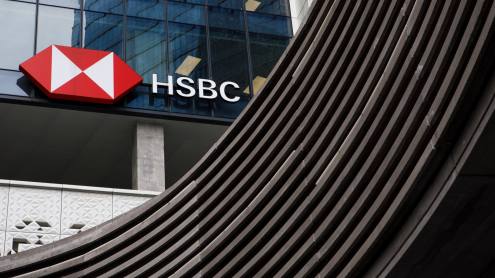‘Cash is king,’ as the saying goes. It is a view that seems to be shared by the UK government, which has intervened to guarantee access to cash points within a three-mile radius of people and businesses.
On August 18, HM Treasury announced that high street banks are now obliged to offer cash-withdrawal locations within a reasonable walking distance from both urban and rural centres.
Under the new rules, firms will have to anticipate the potential harm to their customers from the closure of any branch or ATM. But with the framework still in its pilot phase, the new legislation is unlikely to come into effect before next summer.
The move comes following the closure of thousands of bank branches over the past few years, caused by a growing number of people opting for digital payment services. It has prompted the government to ramp up efforts to safeguard vulnerable customers, including the elderly and people with disabilities.
Anna Roughley, head of insights at the Lending Standards Board, says it welcomes the Treasury’s announcement. “This is an important step in ensuring that everyone has access to cash, regardless of their location,” she adds.
Adrian Roberts, chief commercial officer at Link, the UK’s largest cash machine network, says the move is good news for consumers, communities and businesses because it covers both cash withdrawals and deposits.
“Safeguarding access to cash deposits is also very important for businesses, because having access to deposit facilities makes them more likely to accept cash as a means of payment — which is important because access to cash and cash acceptance are really two sides of the same coin and neither is much use without the other,” he says.
Protecting access to cash
According to a report from the Financial Conduct Authority (FCA), more than 99% of the UK population lives within a three-mile radius of a free-to-use cash machine. However, digital payments have risen exponentially, going from 45% a decade ago to 85% of the total volume of transactions in 2021, the FCA reports.
But has the inexorable rise of digital payment mechanisms come at a cost for the more than 3 million people in the UK who, according to the FCA’s report, are still heavily reliant on cash to make daily payments?
Many UK high street banks have drastically reduced their branches over the past few years, according to a 2023 report from Which?, or plan to do so in the foreseeable future. This year alone, more than 400 branches were closed, according to Which?, while a further 230 are scheduled to close later this year. Banks that are scaling back their branch networks this year include Barclays, HSBC and Lloyds.
But Eric Leenders, managing director for personal finance at UK Finance, says that although cash use has declined, the banking and finance sector is committed to ensuring there is continued access to cash for those who need it, when they need it. “The industry has already invested in delivering this commitment, including through shared banking hubs, free ATMs and cashback without purchase,” he says.
As a preventive measure, however, the government has asked the FCA to monitor banks and ensure that they are following the new norms regulating cash accessibility. In a statement, the FCA said that although the way people pay is changing, the new powers will “help ensure that access to cash is maintained” for businesses and people who rely on it.
However, the rules will need to vary based on the needs of customers and small and medium-sized businesses in different parts of the country.
A rural area could be a touristic hub which sees a lot of transactions ... or a farming jurisdiction where the use of cash is massive, so a blanket policy is not going to be effective
Andra Sonea, who is in the process of submitting her PhD thesis in urban science to the department of computer science at the University of Warwick, says that in the UK there are areas that look the same from a statistical point of view, but quite different in reality — statistical bodies follow different criteria to determine what is rural and what is urban depending on their location.
“A rural area could be in fact a touristic hub which sees a lot of transactions, a mining region that is very economically deprived, or it could be a farming jurisdiction where the use of cash is massive, so a blanket policy is not going to be effective,” says Ms Sonea.
Although the new framework aims to regulate access to cash points, it will also have an impact on banking services. In the autumn, the FCA will consult on new rules that will require banks to maintain reasonable access to cash in a local area by assessing local provisions and taking appropriate steps to install additional services where needed.
Is cash doomed to disappear?
As more businesses transition to electronic and other digital forms of payment, future demand for cash remains uncertain.
Some societies, like Sweden, for example, are almost entirely cashless. According to the Riksbank’s Payments 2022 Report, payments in stores are rarely made in cash, with most people preferring to pay digitally. Mobile payment systems such as Swish, which was launched in 2012 by Sweden’s six largest banks, now exceed 8 million users, says the Riksbank, with 95% of people aged 15 to 65 having downloaded the Swish app.
Despite the convenience of digital payments, some customer demographics still need access to cash. Often unbanked, immigrants and people living in rural communities are more likely to use cash. In view of this, Sweden backtracked on its cashless vision via a 2021 law that bears strong similarities to HM Treasury's new framework. The law requires banks to offer cash and for customers to be able to easily access it without travelling far.
Read more
At the time the law was introduced, the Swedish Civil Contingencies Agency, a part of the Ministry of Justice, remarked that a society that functions totally without cash would be highly susceptible to attacks or natural disasters because its economy would be completely reliant on the efficiency of the internet or power grid.
“Cash is a method of payment that offers resilience in the face of catastrophic events,” says Ms Sonea. “If a country doesn’t have a traditional payment alternative that involves the use of cash, it leaves the economy vulnerable and highly dependent.”
Although it is clear that the UK is on the path towards becoming a low-cash society, Mr Roberts says that “cash is here to stay for as long as it is needed”. During a cost of living crisis, he says, lots of people think of cash as their best budgeting tool, “so we are just simply not ready to let go of cash yet”.







